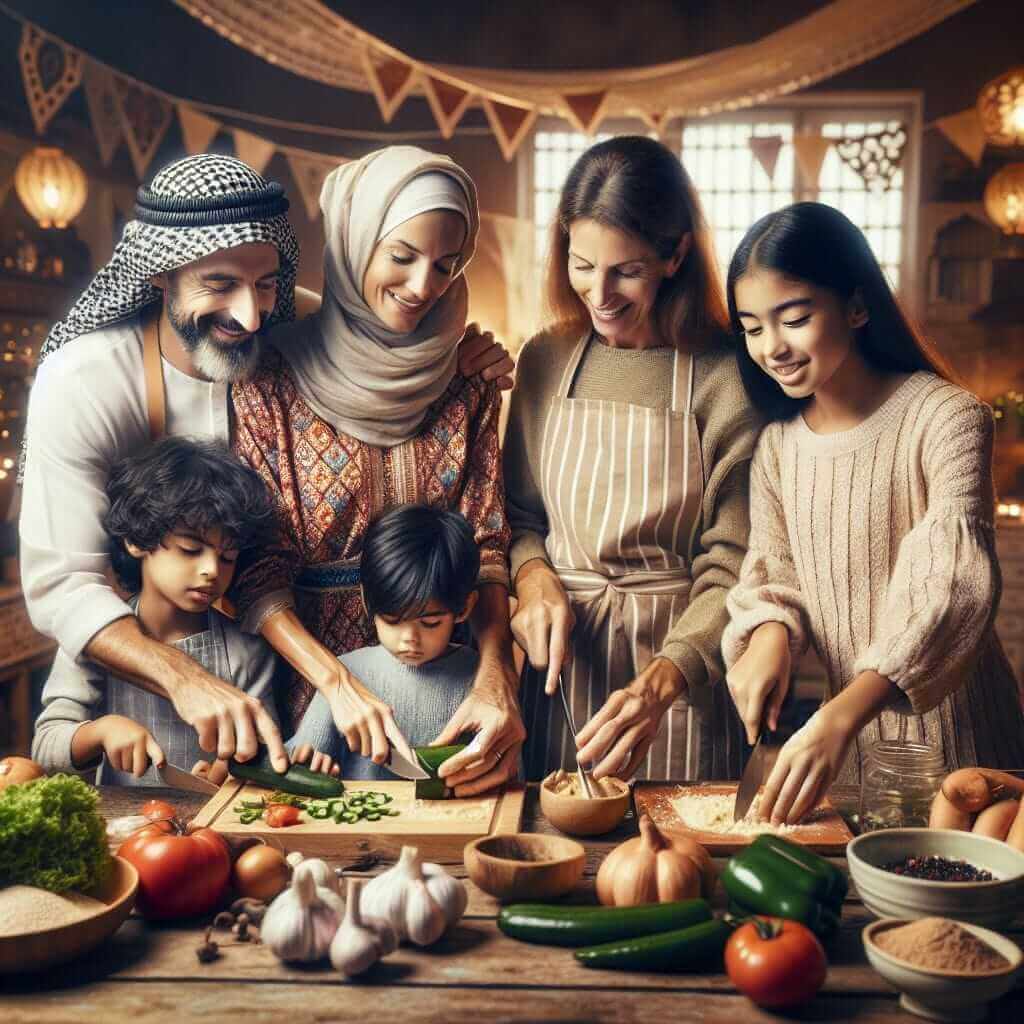The IELTS Speaking test assesses a candidate’s proficiency in English through a face-to-face interview, typically lasting between 11-14 minutes. The test consists of three parts: Introduction and Interview, Long Turn, and Two-way Discussion. As an examiner, I prioritize fluency, coherence, lexical resource, grammatical range, and pronunciation. Among the various topics that may appear, describing a time when you took part in a family tradition is a common and relatable one.
Stories of family traditions are frequently asked as they reflect cultural awareness and personal experience, providing ample opportunity for examiners to gauge a candidate’s detailed narrative skills. Below, we will explore sample questions, ideal answers, and tips for achieving a high band score in the Speaking section.
II. Main Content
1. Part 1: Introduction and Interview
Examiners may ask general questions to relax you and evaluate your ability to communicate basic information about yourself.
Example Question:
- Can you tell me about a family tradition that is important to you?
Suggested Answer:
A significant family tradition that I cherish is our annual Lunar New Year celebration. Every year, my family gathers to prepare a grand feast, exchange “lì xì” (lucky money), and perform traditional lion dances to welcome the new year. This tradition strengthens our family bonds and keeps our cultural heritage alive.
2. Part 2: Long Turn
In this part, you will be given a cue card with a topic to speak about for 1-2 minutes.
Cue Card:
Describe a time when you took part in a family tradition. You should say:
- what the tradition is
- when it started
- how you take part in it
- and why this tradition is important to you.
Suggested Answer:
One of the most meaningful family traditions I take part in is celebrating Tết Nguyên Đán (Lunar New Year). This tradition began long before I was born, so it has been deeply rooted in our family history. Each year, during the first day of the lunar calendar, my relatives and I gather at my grandparents’ house to celebrate this festive occasion. My role typically involves helping to prepare traditional dishes like bánh chưng (sticky rice cake) and nem rán (spring rolls).
In addition, we also engage in decorating the house with peach blossoms and red lanterns, which symbolize prosperity and happiness. This tradition is incredibly important to me as it not only honors our ancestors but also fosters a sense of unity and continuity within the family. Engaging in this event enables me to appreciate our cultural heritage and pass it on to future generations.
Additional Questions:
-
Why do you think family traditions are important?
- Family traditions play a crucial role in maintaining cultural identity and fostering a sense of belonging within the family. They offer opportunities for bonding and teaching younger generations about their heritage.
-
How do family traditions differ from one culture to another?
- Family traditions vary widely across cultures. For instance, in Western cultures, Thanksgiving is a prominent tradition involving a communal meal, while in East Asian cultures, traditions like Lunar New Year involve specific rituals and food. Understanding these differences highlights the uniqueness and richness of each culture.
3. Part 3: Two-way Discussion
In this part, the discussion becomes more abstract, examining broader issues related to the topic discussed in Part 2.
Example Questions and Suggested Answers:
-
Do you think modern families still value traditional celebrations?
- Although modern families often lead busy lifestyles, many still place significant value on traditional celebrations. These events offer a rare opportunity for family members to reconnect and celebrate their shared history and customs, which are essential for preserving cultural identity.
-
How do you think family traditions will change in the future?
- I believe family traditions will evolve in response to societal changes and technological advancements. Some traditions may be adapted to fit contemporary lifestyles, incorporating modern elements while retaining core values. For example, virtual family gatherings might become more common, especially among families living in different parts of the world.

4. Key Vocabulary and Structures
To enhance your performance, incorporating specific vocabulary and structures is crucial:
-
Cherish (verb) /ˈʧɛrɪʃ/: To hold in great affection.
- Example: I cherish the moments spent with family during the Lunar New Year.
-
Prosperity (noun) /prɑːˈspɛrɪti/: The state of being prosperous.
- Example: We decorate our house with symbols of prosperity during the celebration.
-
Heritage (noun) /ˈhɛrɪtɪʤ/: Cultural practices and traditions passed down through generations.
- Example: Embracing our heritage through family traditions is important to me.
-
Foster (verb) /ˈfɑːstər/: To promote the growth or development of.
- Example: These traditions help foster a strong sense of family unity.
Using complex structures, such as relative clauses or conditionals, can also add depth to your answers:
- Relative Clause: This tradition, which has been passed down for generations, is integral to our family identity.
- Conditional: If we didn’t celebrate this tradition, we would lose a significant part of our cultural heritage.
III. Tips for Success
To maximize your speaking score:
- Practice Regularly: Engage in daily practice sessions, focusing on fluency and coherence.
- Use a Range of Vocabulary: Diversify your lexical choices to avoid repetition.
- Incorporate Idioms and Expressions: Use idiomatic language naturally to demonstrate proficiency.
- Seek Feedback: Get feedback from peers or instructors to identify areas for improvement.
- Stay Calm and Confident: Maintain composure and speak confidently, even if you need a moment to think.
By following these tips and incorporating the strategies and vocabulary highlighted in this guide, you can achieve a high band score in the IELTS Speaking section. Don’t forget to check out related resources such as Describe a Time When You Learned About a Different Culture and Describe an Occasion When You Celebrated Something for more practice and insights.